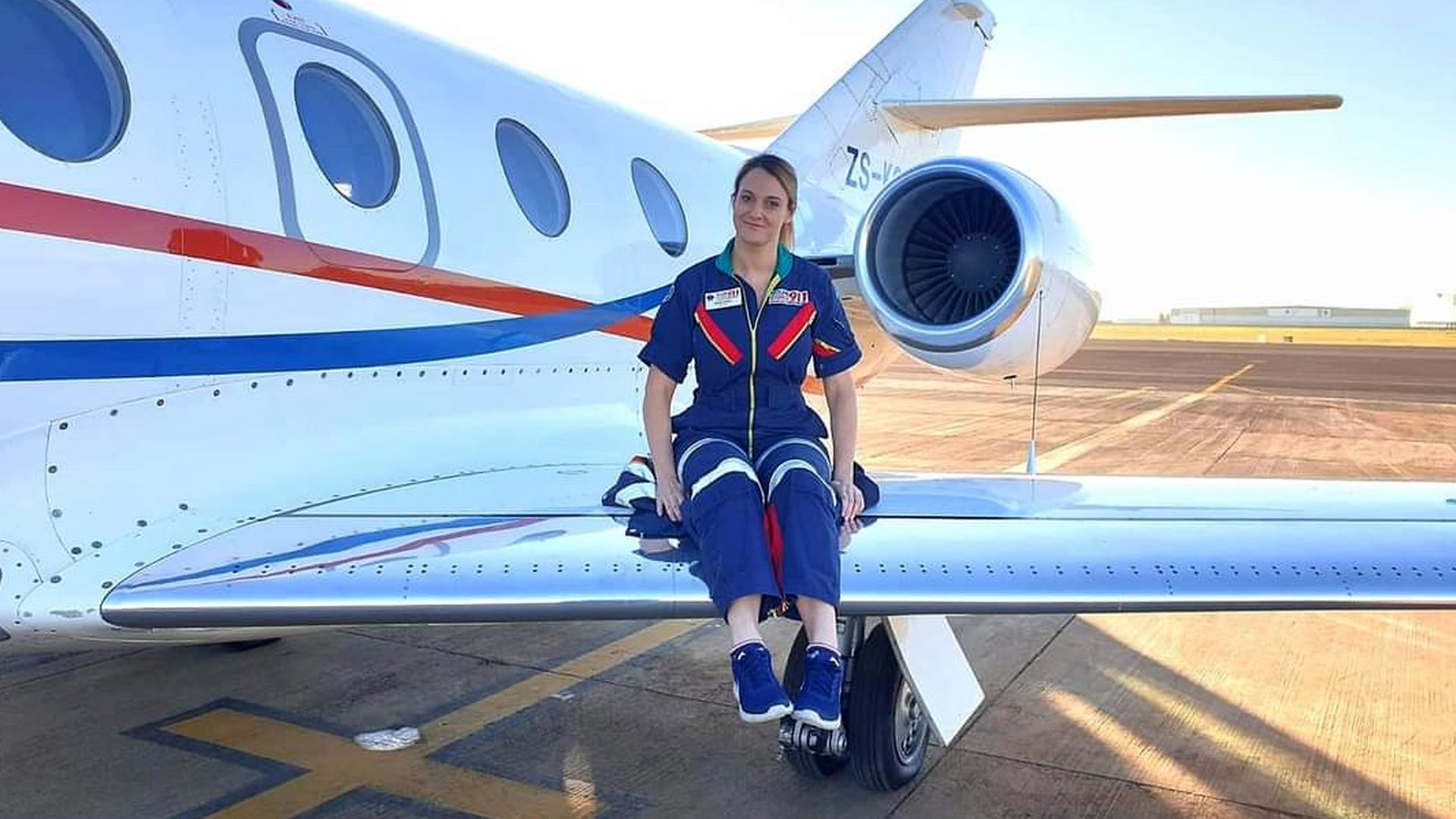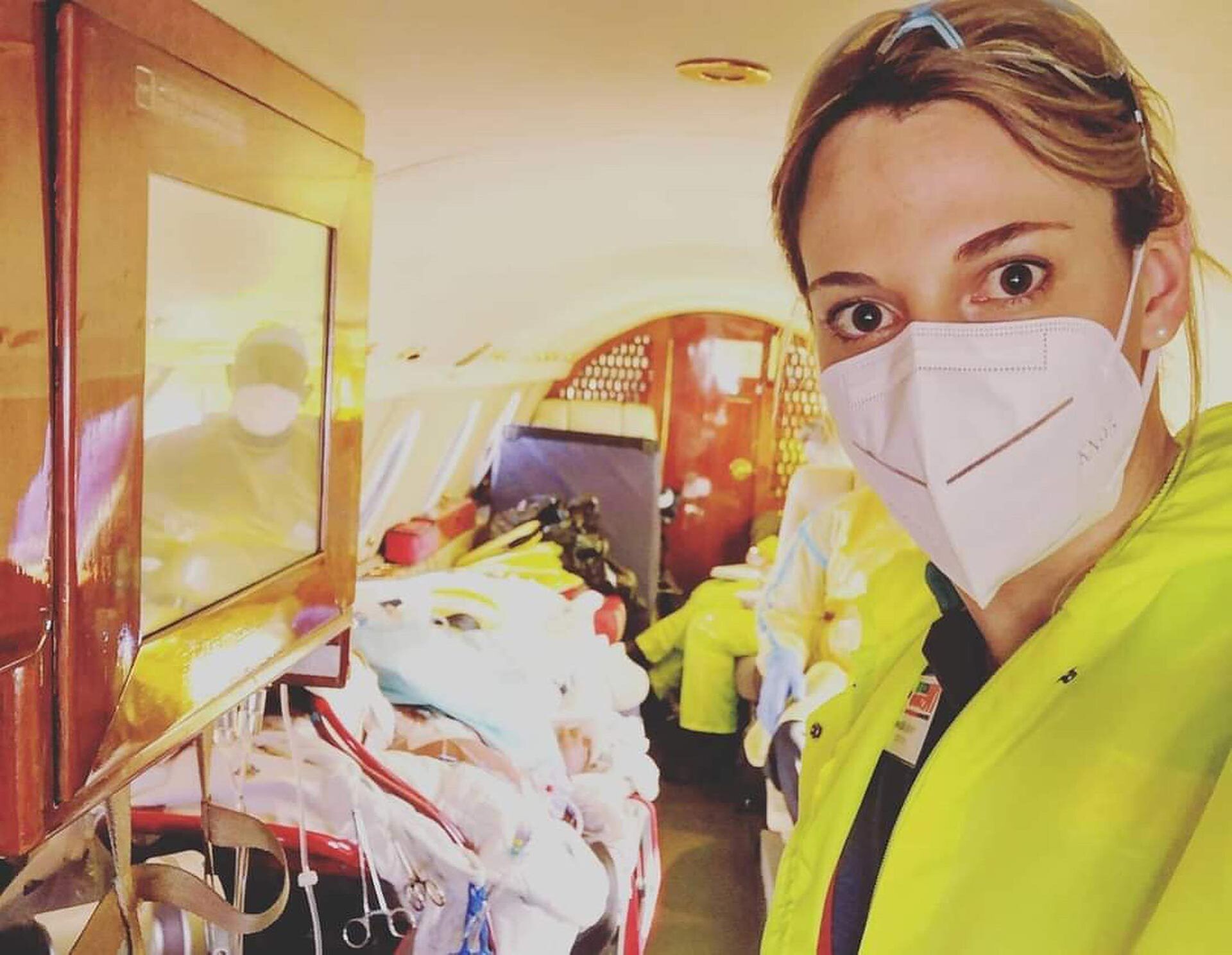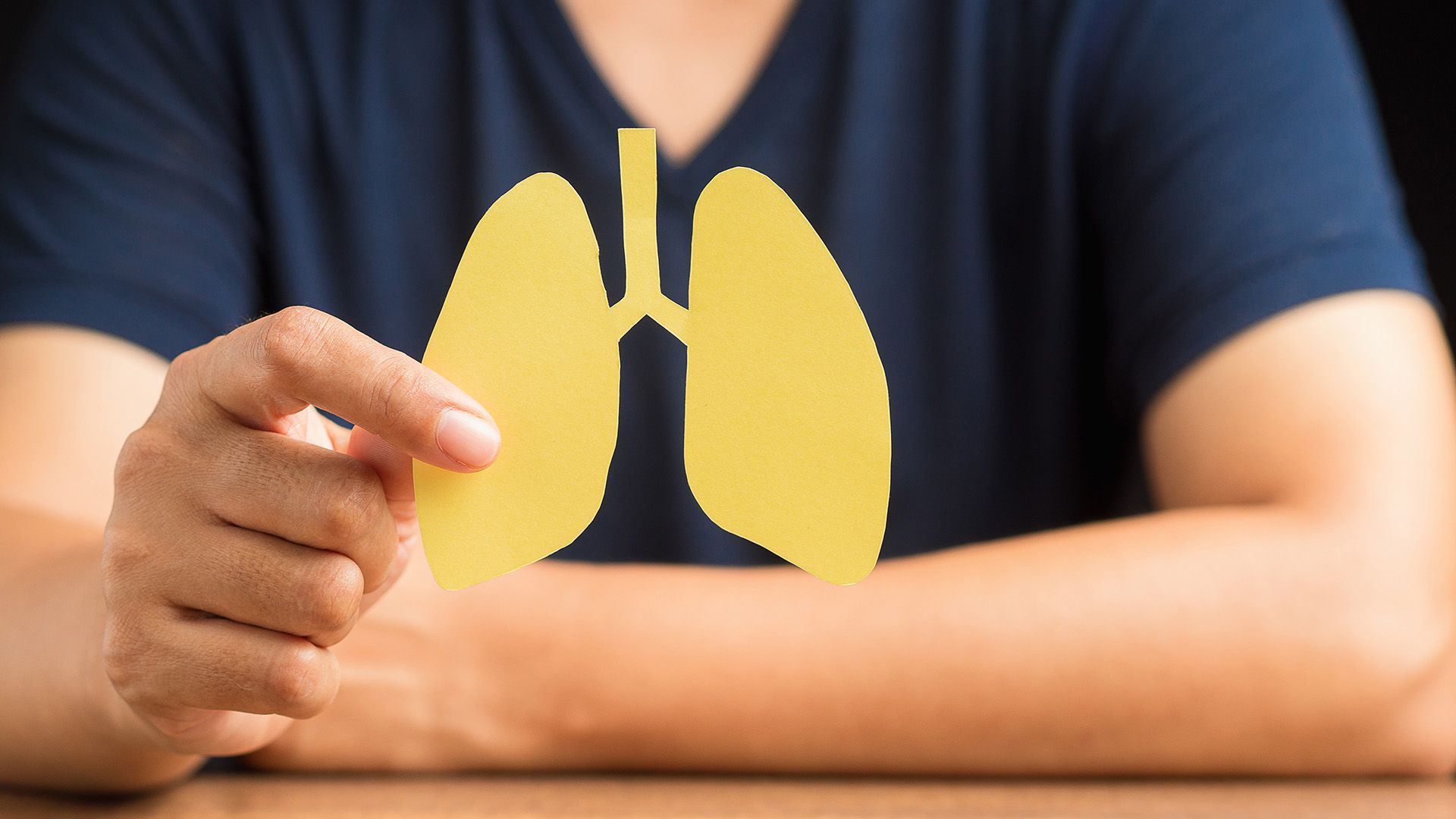Flight doctor completes 100th mission on emergency flight to Sudan
March 9, 2021
Dr Swart with one of the fixed wing aircrafts used for flight missions, the Falcon 20
Specialised aircraft and seamless teamwork make successful journey possible
On a mission to Sudan, one of South Africa’s finest flight doctors traversed the continent, crossing the airspace of six countries and covering approximately 4 660 kilometres to save the life of one man.
Dr Nadia Swart, flight doctor with the Netcare 911 fixed wing division, recently undertook her 100th mission. This significant milestone comes just 36 months after Dr Swart qualified as a flight doctor. “This particular mission involved a patient in Khartoum suffering from an acute bowel obstruction and requiring highly specialised care. It was our duty to ensure that he made it safely to South Africa as quickly as possible to undergo the life-saving procedure,” she says.
“Planning an emergency flight such as this one requires the meticulous co-ordination of multiple elements. The added complexities of COVID-19 protocols mean there are many more boxes to check before taking to the air. Clearances must be obtained from several South African national government departments as well as from the airport at which you are going to land and each of the countries whose airspace you will be travelling through. This can take one or two days to arrange.
“Furthermore, due to the duration of this long-haul mission, we had limited ground time available in order to comply with the legal flight and duty limitations for the crew. We therefore had to make a direct turn-around, with the patient being brought to us at the airport,” explains Dr Swart.
Access to emergency aircraft, such as the Falcon 50 used on this mission, and the specialised medical equipment on board is what makes such life-saving journeys possible. However, Dr Swart says that the dynamic between the team in a fixed-wing environment is the cornerstone of any successful mission.
“The energy between the doctor, the paramedic and the pilots is ultimately the most important element of the journey. When you are in the air you need to be able to depend upon one another. While you can make a call to ground services for telephonic assistance, you are the only ones attending to the patient. We therefore rely heavily on cohesive team-work and that is what can make or break a successful mission,” she relates.
Shalen Ramduth, operations director of Netcare 911, praised Dr Swart and the team for completing the mission so seamlessly. “We commend Dr Swart on her 100th mission and we thank her and the rest of the flight team for their level of professionalism and commitment to best and safest patient care. Netcare 911 is honoured to be able to provide such a world class service to the African continent and surrounding islands,” he concludes.
Dr Swart transporting a patient aboard a fixed wing aircraft














